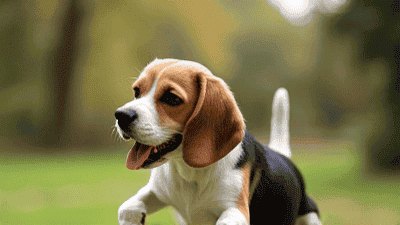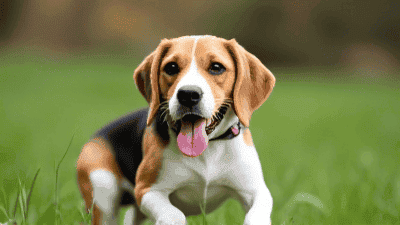
Beagles are one of the most beloved dog breeds in the world, known for their friendly demeanor, playful nature, and keen sense of smell. Originally bred as hunting dogs, Beagles have transitioned into cherished family pets due to their adaptability and affectionate personalities. However, their curious and energetic nature can also present challenges for pet owners.
Beagles have a rich history dating back to ancient Greece, where small scent hounds were used for hunting. The modern Beagle was developed in England in the 19th century and was primarily used for tracking hare and other small game. Their exceptional sense of smell and compact size made them ideal hunting companions.
Beagles are:

Beagles are intelligent dogs, but their stubborn streak can make training difficult if not started early. Begin training your Beagle as soon as you bring them home, ideally during the puppy stage.
Beagles respond best to positive reinforcement techniques, such as treats, praise, and playtime. Avoid harsh punishments, as this can lead to fear or aggression.
Teach your Beagle basic commands like:
These commands are essential for ensuring your Beagle’s safety and managing their behavior.
Beagles have a strong prey drive and may be tempted to chase after scents. Leash training is crucial to prevent them from running off. Use a harness to avoid injury and practice walking on a leash in a controlled environment.
Crate training can help your Beagle feel safe and secure while preventing destructive behavior when you’re not home. Make the crate a positive space by adding toys, blankets, and treats.
Expose your Beagle to different people, animals, and environments to help them become well-adjusted and confident. Early socialization is key to preventing fear or aggression.
Beagles are social dogs and may experience separation anxiety when left alone. Gradually acclimate your Beagle to being alone by starting with short periods and gradually increasing the duration.
Beagles are high-energy dogs that require regular exercise to stay healthy and happy. Aim for at least 30-60 minutes of physical activity daily, such as:
Beagles are intelligent and curious dogs that thrive on mental stimulation. Provide puzzle toys, scent games, and training sessions to keep their minds engaged.
Beagles have low-maintenance coats, but they do shed seasonally. Regular grooming tips include:
Feed your Beagle a balanced diet that meets their nutritional needs. Choose high-quality dog food formulated for their age, size, and activity level. Avoid overfeeding, as Beagles are prone to obesity.
Beagles are generally healthy dogs, but they can be prone to certain health issues, such as:
Schedule regular checkups with your veterinarian to monitor your Beagle’s health. Keep up with vaccinations, parasite prevention, and dental care to ensure their overall well-being.

Beagles thrive on companionship and love spending time with their families. Engage in activities like walking, playing, or simply relaxing together.
Beagles can be stubborn, so patience and consistency are key to building a strong bond. Use positive reinforcement and avoid harsh corrections.
Beagles are scent hounds, so their instincts may lead them to follow their nose. Provide opportunities for sniffing and exploring in a safe environment.
Beagles are affectionate dogs that enjoy cuddles, belly rubs, and gentle petting. Show your love and appreciation to strengthen your bond.
Tap into your Beagle’s natural tracking abilities by setting up scent games or enrolling them in nose work classes.
Beagles are agile and enjoy navigating obstacle courses. Agility training can provide both physical and mental stimulation.
Take your Beagle on outdoor adventures, such as hiking or camping, to satisfy their love for exploration.
Consider enrolling your Beagle in dog sports like tracking, rally obedience, or flyball to challenge their skills and keep them engaged.

Beagles are vocal dogs that may bark to communicate or alert you to something. Teach them the "quiet" command and provide mental stimulation to reduce excessive barking.
Beagles may chew or dig out of boredom. Provide plenty of toys, exercise, and mental enrichment to prevent destructive habits.
Beagles are known for their Houdini-like escape skills. Ensure your yard is securely fenced and supervise them during outdoor play.
Some Beagles can be picky eaters. Stick to a consistent feeding schedule and avoid giving too many table scraps.
The Beagle is a wonderful companion for families and individuals alike, thanks to their playful, friendly, and curious nature. While they can be a bit stubborn and mischievous at times, with proper training, care, and attention, Beagles make loyal and loving pets. By understanding their needs and providing a stimulating environment, you can ensure your Beagle thrives and enjoys a happy, healthy life. Whether you’re a first-time pet owner or an experienced dog lover, the Beagle’s charm and personality are sure to win your heart.